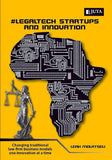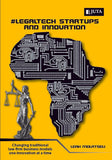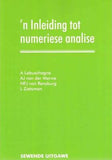
Street Law: Democracy for All - Learner’s Manual, 2nd Edition
Product Details:
| Author(s): | Coetzee, L,McQuoid-Mason et al,Lotz, L |
| Page count: | 190 |
| ISBN: | 9781485119692 |
| Languages(s): | English, |
| Year Published: | 2017 |
| Categories: | Introduction to Law, Clinical Legal Education |
| Type: |
About this publication
The second edition of Democracy for All: Learner’s Manual is aimed at young people, adults, students and teachers. The book explains how the international community understands democracy, and explores what democracy means to each of us. Democracy for All also explains how government works in a democracy, how the abuse of power is checked, how human rights support democracy, how democratic elections take place, and how citizens can participate in democracy.
The objectives of the book are:
• To improve students’ understanding of the fundamental principles and values underlying democracy in society;
• To promote awareness of the current issues and controversies relating to democracy;
• To show students that their participation can make a difference to how democracy functions in their country;
• To foster justice, tolerance and fairness;
• To develop students’ willingness and ability to resolve disputes and differences without resorting to violence;
• To improve basic skills, including critical thinking and reasoning, communication, observation and problem-solving.
Democracy for All uses a variety of student-centered activities, including case studies, role-plays, simulations, small-group discussions, opinion polls and debates. The companion volume, entitled Democracy for All: Educator’s Manual, explains how the lessons in the Learner’s Manual can be conducted and provides solutions to the problems.
Content
- What is democracy? (Second edition by David Mcquoid Mason)
- Defining democracy
- Democracy and power
- Types of democracy
- The difference between democracy and dictatorship
- Types of representative democracy
- Fundamental principles of democracy
- Signposts to democracy
- Expectations of democracy
- You and democracy
- How government works in a democracy (Second edition by Lloyd Lotz)
- A Constitution and a Bill of Rights
- Drafting a Constitution
- Changing the Constitution
- Structure of government
- Role of government in the economy
- Role of local government in democracy
- Checking the abuse of power (Second edition by Lindi Coetzee)
- What is abuse of power?
- Accountability and transparency
- Domestic methods of checking the abuse of power
- International methods of checking the abuse of power
- Human rights and democracy (Second edition by David McQuoid-Mason)
- What are human rights?
- Different types of human rights
- Which rights should be in a Bill of Rights?
- How human rights make democracy succeed
- Conflicting human rights in a democracy
- Is it ever justified to suspend human rights in a democracy?
- Elections (Second edition by Lloyd Lotz)
- Elections and voting
- Who can vote?
- Political parties in an election
- Multi-party democracy
- Candidates in an election
- Free and fair elections
- Frequency of elections
- Voting procedures
- Political tolerance and elections
- After the election: accepting defeat
- Citizen participation (Second edition by Lindi Coetzee)
- What is citizen participation?
- Becoming informed
- Participation in civil society
- Participation in party politics
- How citizens can change public policy
- Protests and demonstrations
- Responsibilities towards other citizens
- Glossary
- Annexures
- Annexure A: Universal Declaration of Human Rights (1948)
- Annexure B: African Charter on Human and People’s Rights
- Annexure C: Constitution of the Republic of South Africa, 1996: Bill of Rights
- Annexure D: Constitution of the Republic of South Africa, 1996, Bill of Rights (abbreviated)
- Annexure E: Electoral Code of Conduct
We Also Recommend




